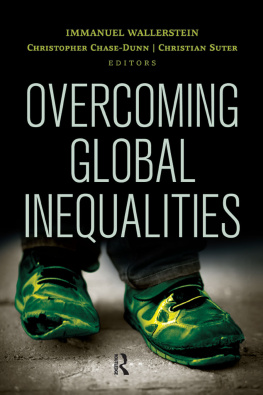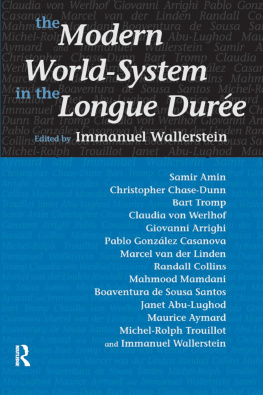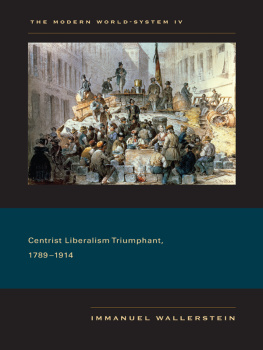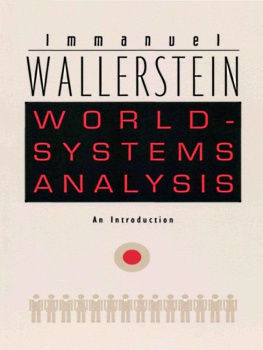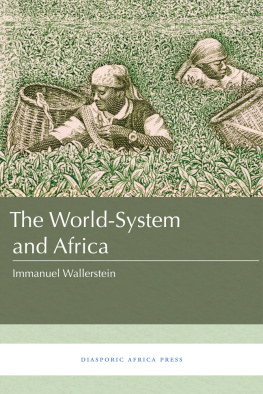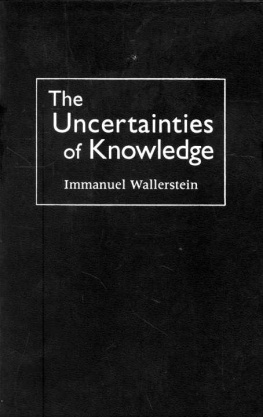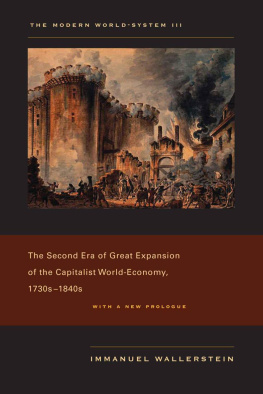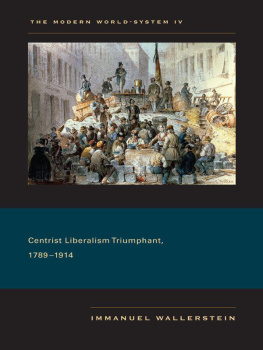OVERCOMING GLOBAL INEQUALITIES
Immanuel Wallerstein,
Christopher Chase-Dunn, and
Christian Suter, coeditors
Political Economy of the World-System Annuals, Volume XXXIV
Immanuel Wallerstein, Series Editor
First published 2015 by Paradigm Publishers
Published 2016 by Routledge
2 Park Square, Milton Park, Abingdon, Oxon OX14 4RN
711 Third Avenue, New York, NY 10017, USA
Routledge is an imprint of the Taylor & Francis Group, an informa business
Copyright 2015, Taylor & Francis.
All rights reserved. No part of this book may be reprinted or reproduced or utilised in any form or by any electronic, mechanical, or other means, now known or hereafter invented, including photocopying and recording, or in any information storage or retrieval system, without permission in writing from the publishers.
Notice:
Product or corporate names may be trademarks or registered trademarks, and are used only for identification and explanation without intent to infringe.
Library of Congress Cataloging-in-Publication Data
Structures of the World Political Economy and Future Global Conflict and Cooperation (Conference) (2013 : University of California, Riverside)
Overcoming global inequalities / edited by Immanuel Wallerstein, Christopher Chase-Dunn, and Christian Suter.
pages cm. (Political economy of the world-system annuals ; volume XXXIV)
Papers originally presented at a conference on Structures of the World Political Economy and Future Global Conflict and Cooperation, held in April of 2013 at the University of California-Riverside.
Includes bibliographical references.
ISBN 978-1-61205-675-3 (hardcover : alk. paper) ISBN 978-1-31563-305-3 (eBook)
1. EqualityCongresses. 2. EqualityEconomic aspectsCongresses. I. Wallerstein, Immanuel Maurice, 1930 II. Chase-Dunn, Christopher K. III. Suter, Christian, 1956 IV. Title.
JC575.S776 2013
305dc23
2014017033
Designed and Typeset by Straight Creek Bookmakers
ISBN 13: 978-1-61205-675-3 (hbk)
ISBN 13: 978-1-61205-688-3 (pbk)
Immanuel Wallerstein, Christopher Chase-Dunn, and Christian Suter
This volume examines the changing nature of global inequalities and efforts that are being made to move toward a more egalitarian world society. The authors are world-historical sociologists and geographers who place the contemporary issues of unequal power, wealth, and income in global historical perspective. The geographers examine the roles of geopolitics and patterns of warfare in the historical development of the modern world-system. And the sociologists examine endeavors to improve the situations of poor peoples and nations and to engage the challenges of sustainability that are linked with global inequalities. This is cutting-edge research from engaged social scientists intended to help humanity deal with the challenges of global inequality in the twenty-first century.
Some see recent developments in the world political economy as fundamental departures from the structures of the past, while others view these recent changes as rather similar to those that have occurred in earlier centuries. The international division of labor in the world economy has been in turmoil with the deindustrialization of older industrial regions and the rise of new centers of production and accumulation. The wave of financialization over the past several decades sent the global economy into a crisis in 2008. Rising food prices and high unemployment have led to an increase in anti-authoritarian social movements and waves of protest in the Global South and to unsustainable levels of sovereign debt and pressures for greater austerity in the Global North.
What are the implications of these developments for the future of global conflict and cooperation? Western powers have been involved in wars in the Middle East. The rogue states of Iran and North Korea refuse to give up their development of nuclear weapons. And a group of semiperipheral countries, including China, South Korea, Brazil, and Russia, continue to vie for a more prominent place on the world stage. There are struggles within international organizations between the old world powers and those that are rising. Thus, the world-system seems to be evolving toward an increasingly multipolar political structure in which the ability of the United States to generate hegemonic consensus and order has declined.
The world-systems perspective is often identified with a focus on what are now called Global North/South relations. While it has been claimed that the world is now flat, it seems obvious to most observers that huge inequalities continue to be an important characteristic of an emerging global society. Theorists of a recent stage of global capitalism claim that nation-states are much less important than before and that a global society is emerging in which class relations are increasingly structured by the processes of corporate globalization. It is alleged that this is a new or recent development, having succeeded a situation in which class relations were primarily organized within national societies. The world-systems perspective contends that class relations have been transnational all along and that the core/periphery hierarchy, in which national societies are categorized as being located within the zones of core, semiperiphery, and periphery, continues to be a fundamental aspect of the global system.
There were large inequalities of power and wealth organized as the colonial empires of European core states for centuries, and in the nineteenth century a huge income inequality emerged between the core and the noncore of the global system. This gigantic Global North/South inequality continues to exist despite decolonization and all the rhetoric about developing the Global South.
Since the Protestant Reformation, the institutions of global governance have evolved in response to a series of world revolutions in which local rebellions and social movements have clustered together in time to challenge the powers that be. The elite groups that best succeeded at managing rebellion from below are the ones that were most successful at accumulating capital and occupying the commanding heights of the global system. The contemporary period is one in which the hegemony of the United States is increasingly in question and a new constellation of social movements and counter-hegemonic regimes is challenging the incumbencies of global power.
This volume contains papers that were originally presented at a conference on structures of the world political economy and future global conflict and cooperation, which was sponsored by the Political Economy of the World-System (PEWS) Section of the American Sociological Association and the World Society Foundation of Zurich, Switzerland. This conference was held in April 2013 at the University of California, Riverside, and was organized by the Institute for Research on World-Systems (IROWS) at UC Riverside and by the World Society Foundation.1


